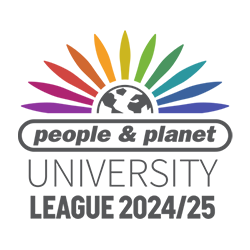-
Study
-
Undergraduate
- Search for a Course
- Undergraduate Open Day & Events
- Application Guides
- Northumbria University UCAS Exhibitions
- Foundation Years
- Undergraduate Fees & Funding
- School & College Outreach
- Continuing Professional Development
-
Postgraduate
- Postgraduate Study Degree
- Postgraduate Research Degrees
- Postgraduate Open Days and Events
- Postgraduate Fees & Funding
- Flexible Learning
- Thinking about a Masters?
- Continuing Professional Development
- Change Direction
-
Student Life
- The Hub - Student Blog
- Accommodation
- Life in Newcastle
- Support for Students
- Careers
- Information for Parents
- Students' Union
- Northumbria Sport
- Be Part of It
-
-
International
International
Northumbria’s global footprint touches every continent across the world, through our global partnerships across 17 institutions in 10 countries, to our 277,000 strong alumni community and 150 recruitment partners – we prepare our students for the challenges of tomorrow. Discover more about how to join Northumbria’s global family or our partnerships.
View our Global Footprint-
Applying to Northumbria
- European Union
- Our London Campus
- Northumbria Pathway
- International Events
- Entry Requirement and Education Country Agents
- Global Offices
-
Northumbria Language Centre
- Faculty Requirements
- Acceptable English Requirements
- Pre-sessional English Language and Study Skills
- Academic Language Skills Programmes (ALS)
-
International Fees, Funding & Scholarships
- International Undergraduate Fees
- International Undergraduate Funding
- International Masters Fees
- International Masters Funding
- International Postgraduate Research Fees
- International Postgraduate Research Funding
- International Money Matters
-
Life at Northumbria
- International student support
- Careers
-
International Mobility
- Current Northumbria Students
- Incoming Exchange Students
-
-
Business
Business
The world is changing faster than ever before. The future is there to be won by organisations who find ways to turn today's possibilities into tomorrows competitive edge. In a connected world, collaboration can be the key to success.
More on our Business Services -
Research
Research
Northumbria is a research-rich, business-focused, professional university with a global reputation for academic quality. We conduct ground-breaking research that is responsive to the science & technology, health & well being, economic and social and arts & cultural needs for the communities
Discover more about our Research -
About Us
-
About Northumbria
- Our Strategy
- Our Staff
- Place and Partnerships
- Student Profiles
- Alumni Profiles
- Leadership & Governance
- Academic Departments
- University Services
- History of Northumbria
- Contact us
- Online Shop
-
-
Alumni
Alumni
Northumbria University is renowned for the calibre of its business-ready graduates. Our alumni network has over 246,000 graduates based in 178 countries worldwide in a range of sectors, our alumni are making a real impact on the world.
Our Alumni - Work For Us
What will I learn on this module?
As a midwife you will care for and support women, newborn infants, fathers and families from a diversity of backgrounds and with a broad spectrum of physical, psychological, social, cultural and spiritual needs. It is essential that you have a good understanding of the social context for childbearing and the nature of family diversity in the 21st century. In this module you will study a range of subjects which will support your development as an effective and compassionate practitioner.
The module will introduce epidemiological data on local, national, and international prevalence around health, perinatal and maternal morbidity and mortality, to develop your knowledge and understanding. The concept of health will be explored to consider ill health, health inequality and the determinants of health. You will study the principles of public health, including the role of the midwife in promoting health and healthy lifestyle choices, and the different ways that information can be shared with women, partners and families, including the use of information technology and social media. Specific public and family health challenges such as obesity, alcohol, smoking and drug misuse will be explored alongside the impact of childbirth on long term health outcomes for women and neonates.
Your understanding of women’s health, sexuality and sexual health will be developed, so that you recognise their impact of women’s physical and emotional wellbeing, alongside the legal and ethical frameworks which underpin maternity care. You will begin to explore the nature of vulnerability, considering issues such as disability, safeguarding and discrimination, and how these contribute to differing health outcomes. Approaches to inclusive practice will be explored, considering other protected characteristics such as ethnicity, and the role of the midwife in ensuring anti-discriminatory practice. You will be supported to reflect on your personal values and cultural awareness.
How will I learn on this module?
On this module, you will engage with a variety of teaching and learning strategies including lectures, seminars and directed learning. Activities will be blended to create a mix of face to face and online activities supported by the University’s Electronic Learning Platform (eLP), Blackboard Ultra. Practice scenarios which illustrate women’s journeys and use women’s stories will aid in the application of theory and enable you to understand the woman’s perspective. Lectures will introduce key concepts. These will then be further explored within seminars, designed to facilitate collaborative learning, developing your inquiry and communication skills. Lectures and seminars signpost you to further reading and learning activities.
You will be introduced to the University Library and the digital resources to support your academic development. A fundamental aspect of learning on the module will come from self-reflection of your own academic and professional development, supported by your personal tutor.
How will I be supported academically on this module?
The academic staff involved in delivering this module will also provide guidance, to ensure that you are able to confidently engage with the module content. Learning materials, including directed and e-learning will be made available on the eLP. Seminars give an opportunity for peer support and feedback throughout the module, helping you to develop the evaluation and feedback literacy skills required for effective professional practice and lifelong learning. You will also receive formative feedback from academic staff informally during seminars, to enable you to review your learning in a safe and supportive environment. Group tutorials will further support preparation for the module assessment.
In addition, the module will be supported by University library staff and resources, including study skills support packages. You can access the interactive training via the library webpages or the following link: http://library.northumbria.ac.uk/learning-skills
Ask4Help online (accessed through your student portal) provides a comprehensive range of answers to frequently asked questions and is of benefit to students as a central point of reference for information about many different topics. Ask4Help face to face service points include that located at Coach Lane Library (ground floor).
What will I be expected to read on this module?
All modules at Northumbria include a range of reading materials that students are expected to engage with. Online reading lists (provided after enrolment) give you access to your reading material for your modules. The Library works in partnership with your module tutors to ensure you have access to the material that you need.
What will I be expected to achieve?
You will be expected to:
Knowledge & Understanding:
1. Demonstrate a critical understanding of the determinants of health and ill health across the childbearing continuum, from a local, national and international perspective.
Intellectual / Professional skills & abilities:
2. Appraise and interpret current policy and data relating to public health, health promotion and health protection issues for women and their babies.
3. Critique the midwife’s role in promoting the health and wellbeing of women, newborn infants, fathers and families from diverse populations, and the challenges associated with this.
Personal Values Attributes (Global / Cultural awareness, Ethics, Curiosity) (PVA):
4. Critically reflect on the development of healthy and respectful relationships with women, fathers/partners and families which promote positive physical, psychological, social, spiritual and emotional outcomes.
How will I be assessed?
Formative Assessment:
Ongoing feedback will be available from tutors throughout the module. Seminars and assessment tutorials will utilise peer and tutor feedback to discuss proposed topics, and the content and required skills for the ePortfolio, and provide opportunities to rehearse the summative presentation.
Summative Assessment:
A 30 minute oral online presentation of an ePortfolio relating to a health promotion activity, and the evidence base for this (MLO 1, 2, 3, 4).
Written feedback will be provided via Turnitin.
Pre-requisite(s)
N/A
Co-requisite(s)
N/A
Module abstract
This year one module will introduce you to key concepts and evidence around health and ill health and from a variety of perspectives, consider their influences on the childbirth continuum. You will explore a range of issues related to the health and wellbeing of women and families, and develop an appreciation of the range of physical, psychological, cultural and social care needs that may arise throughout pregnancy and childbirth. The module is a combination of lectures and seminars, as well as online supported learning, which will expose you to women’s journeys and experiences within maternity care. It is assessed via an oral presentation of an aspect of health promotion within the role of the midwife, and consideration of the evidence base for this.
Course info
Credits 20
Level of Study Postgraduate
Mode of Study 3 years Full Time
Department Nursing, Midwifery & Health
Location Coach Lane Campus, Northumbria University
City Newcastle
All information is accurate at the time of sharing.
Full time Courses are primarily delivered via on-campus face to face learning but could include elements of online learning. Most courses run as planned and as promoted on our website and via our marketing materials, but if there are any substantial changes (as determined by the Competition and Markets Authority) to a course or there is the potential that course may be withdrawn, we will notify all affected applicants as soon as possible with advice and guidance regarding their options. It is also important to be aware that optional modules listed on course pages may be subject to change depending on uptake numbers each year.
Contact time is subject to increase or decrease in line with possible restrictions imposed by the government or the University in the interest of maintaining the health and safety and wellbeing of students, staff, and visitors if this is deemed necessary in future.
Useful Links
Find out about our distinctive approach at
www.northumbria.ac.uk/exp
Admissions Terms and Conditions
northumbria.ac.uk/terms
Fees and Funding
northumbria.ac.uk/fees
Admissions Policy
northumbria.ac.uk/adpolicy
Admissions Complaints Policy
northumbria.ac.uk/complaints














